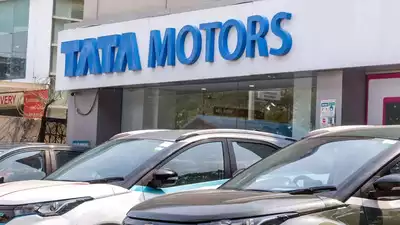In order to address performance difficulties and diversify its supply and technological basis, Tata Motors will purchase battery packs for its electric vehicles from a Chinese manufacturer. Specifically, Tata Motors will purchase batteries from Octillion Power Systems in China. Tata Auto Comp systems is now the source of batteries for the Indian automaker. The top electric vehicle manufacturer presently offers a variety of EVs for sale in India, including the Tiago, Tigor, Punch, Nexon, and the recently introduced Curvv.ev. The automaker is anticipated to introduce the Harrier EV as well. The Curvv.ev will be the first to use an Octillion battery.

Tata Motors Green Future
After a sharp increase in its stock price, Tata Motors just became the first Indian company to rank among the top 10 most valuable global automotive companies. The stock of Tata Motors has increased by more than 50% this year and by more than 101% in 2023. As of July 31, the business’s market valuation stood at $51 billion, making it the most valuable automotive manufacturer in India. Right now, BYD Company ($92.65 billion) and Toyota Motors ($310.50 billion) are the two most valuable auto companies in the world, behind Tesla Inc. ($711.19 billion).
With more than 60% of the Indian market for electric cars, Tata Motors anticipates a resurgence in EV sales in the second half of the year, driven by the holiday season, new product introductions, and clarification on the government’s fleet-specific subsidy program. Earlier this month, ET was informed by Shailesh Chandra, general director of Tata Motors Passenger Vehicle and Passenger Electric Mobility, that the business is “boldly bringing price parity between EVs and equivalent ICE vehicles.” The corporation wants to draw in gas-guzzling mid-size SUV purchasers.
The number of electric vehicles sold has decreased recently. Due to a combination of delayed consumer acceptance and other factors, e-car registrations decreased by 2.92% to 7,541 units in July. According to Chandra, it is important to consider the recent drop in EV sales in the context of a larger market slowdown rather than in isolation.